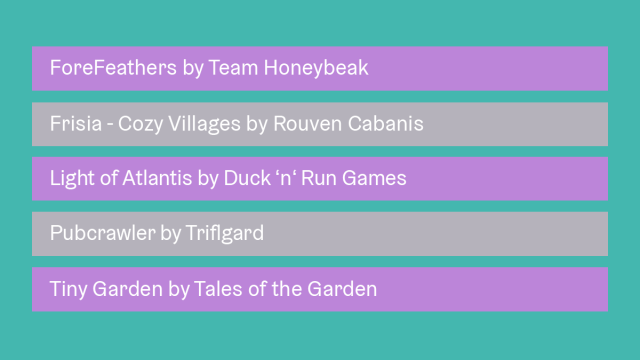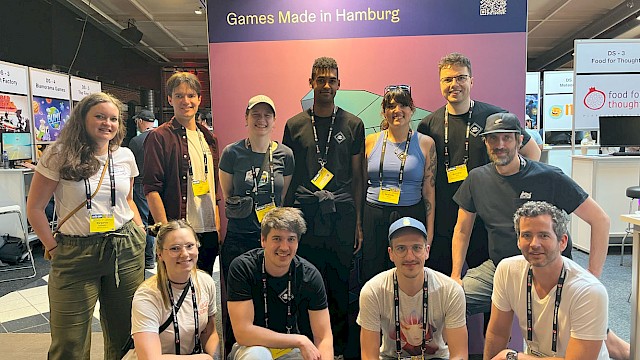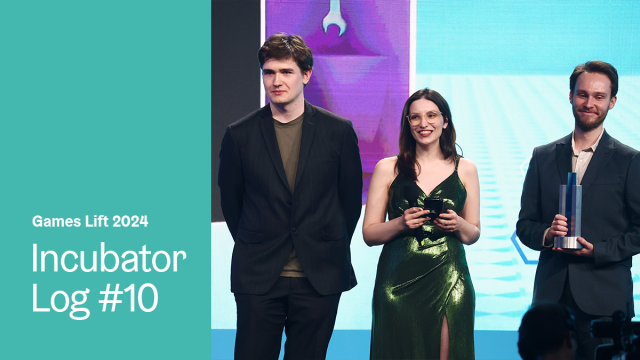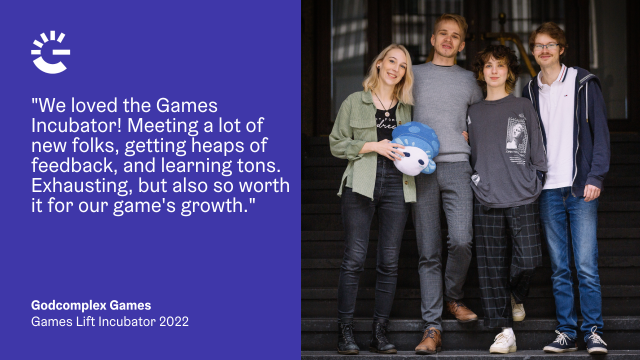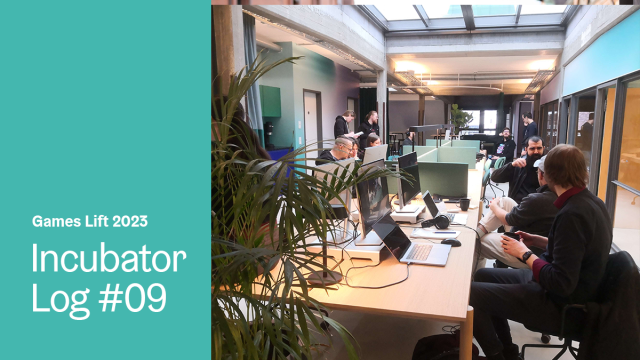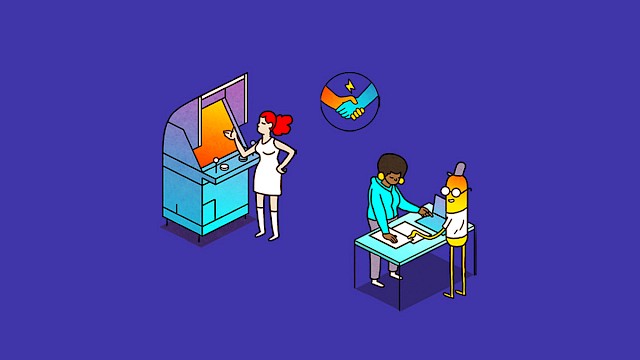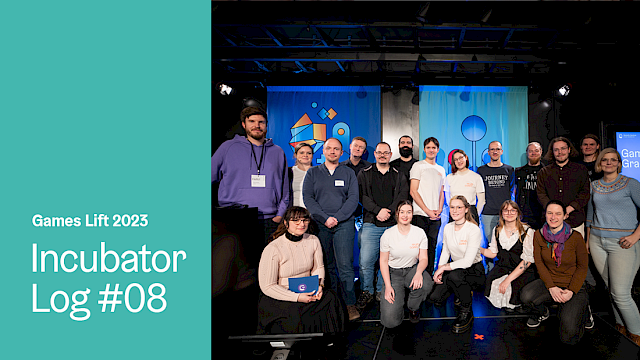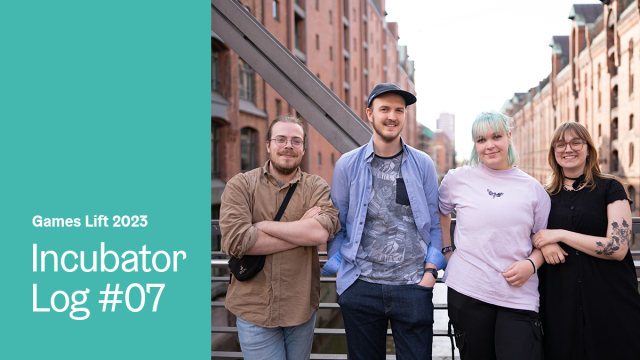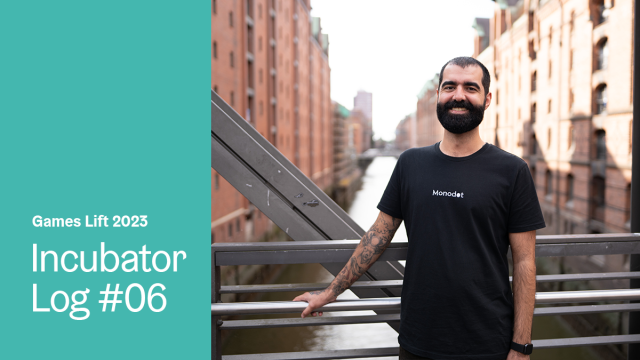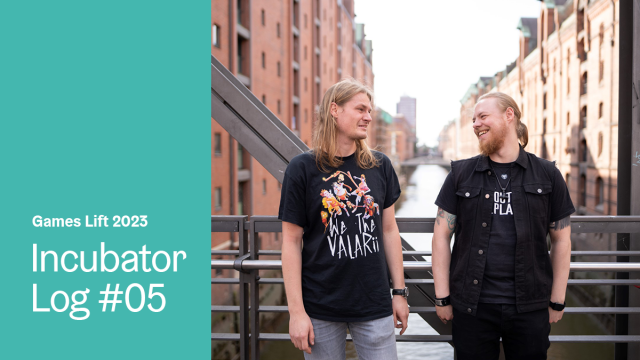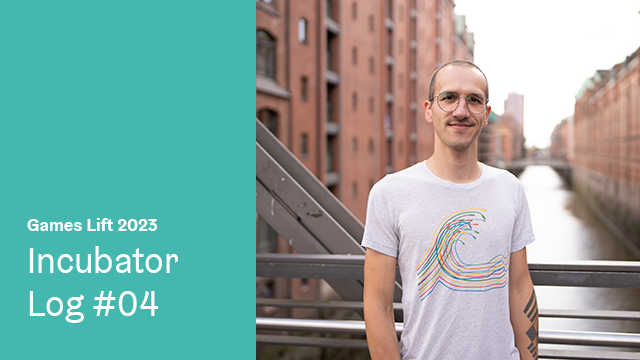September 24, 2021
Games Lift 2021 - New and Improved
After our first Games Lift Incubator 2020 was a success, we worked on the program for the new Games Lift teams 2021. Find out what is new and what improved in our Incubator Log #3
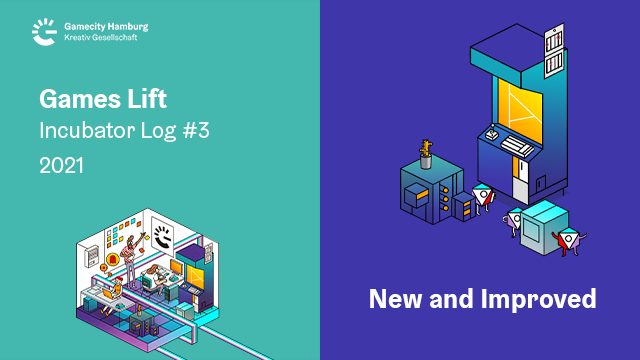
In its first outing last year, Games Lift Incubator was a success. That’s why it returns with all key elements intact. But there’s always something to improve, or as we in the business like to say: Evaluation breeds elevation. We may not actually say that. But here is what Gamecity’s project lead Dennis Schoubye and project manager Margarete Schneider had to say.
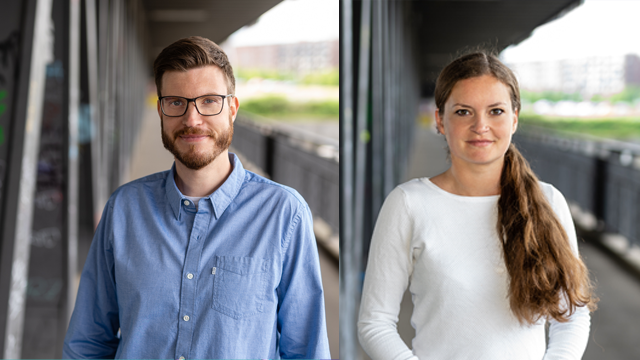
Margarete Schneider is grateful for last year. The first Games Lift Incubator was an ambitious project, and it worked well. This was not just due to good planning. One key aspect lies in the hand of others: The teams were “amazing”, she smiles. “They were helping each other, really bringing life into the Incubator.”
The five teams of last year’s incubator left a lasting impression, and they remain closely tied to Gamecity Hamburg. A good example is Ole Jürgensen’s VR project Crumbling, which successfully applied for prototype funding. “His application really demonstrated what he has learned during the Incubator”, Schneider says. Dennis Schoubye agrees: “Seeing how teams incorporate the advice of our mentors is always a highlight for me.”
The Incubator functions as a safe space in which even fundamental questions about a project’s direction have a place. That way, teams can digest and incorporate constructive feedback before they showcase their game.
New teams, new topics
The Games Lift Incubator certainly doesn’t look like a broken program in need of any fixing. But the motor of change is running already: Our new teams have arrived, each with their own challenges and goals. Compared to last year, the mix is different.
Some workshops have to change, accordingly. Not too many, though: Schneider describes the program as a framework in which many parts can stay. Deciding on the specifics is a process between the organizers and the teams. They brought important feedback when it comes to finding the right speakers. Of course it is important to bring big names into the network. But the teams also enjoyed talking to smaller indie developers, Schneider explains. “For them, it was inspiring to hear from people in similar situations about how they processed setbacks and got back up again.”
Some business-related workshops stay relevant. But in some areas, the individual needs are wildly different from team to team. To accommodate this, two additions were made during last year’s program. This year, they return from the get-go: One is the availability of “individual follow-up coaching” in the 12 months after the graduation pitch, the other is a time budget with a PR agency specialising in indie games. Schoubye puts an emphasis on keeping in contact with the teams when the workshops are done. He wants to help the teams make their next big step; and three months may not be enough time for that.
Let’s keep in touch
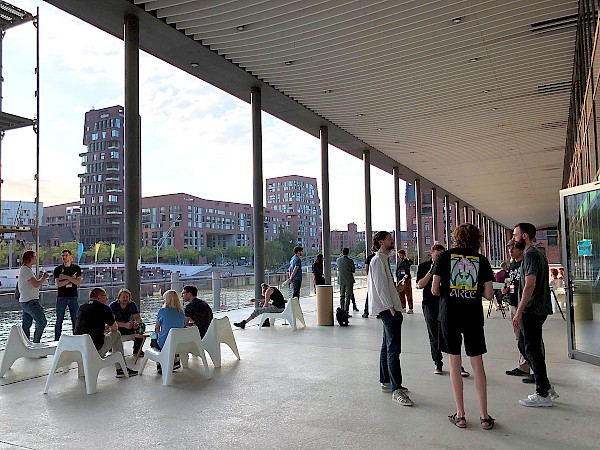
Making sure there is an ongoing informal exchange is central to Schoubyes mission: “For us, networking is just as important as for our Games Lift teams.” He is delighted about the lively discussions on Gamecity’s Discord, about the way the teams just mingle. His ultimate goal is to keep the Games Lift alumni connected to Gamecity as new mentors, feeding their knowledge back into the network.
COVID forced Gamecity to hold main parts of the incubator remotely. The virtual format does have some benefits; it is freeing up valuable time and it will remain a necessity for some of our international speakers. But everyone is looking forward to more meet-ups in person. Schneider and Schoubye want to “keep encouraging” the teams to connect with each other. And they also look forward to meeting teams and mentors themselves.
These benefits are important, but hard to calculate beforehand. Schneider tells the story of how during the first round of evaluation, teams clearly saw the financial funding as the Incubator’s most attractive part. She was happy to see other ratings catch up during its runtime. She and Schoubye strive to keep a good balance between the Incubator’s many services.
They aren’t alone in tackling the challenge. Project manager Daniel Hericks is helping to run the Incubator this time around. He is a new addition to Gamecity Hamburg’s team.
Games Lift Incubator is all about sustainable growth, not about startups making the biggest possible jump in the shortest amount of time. To make that as clear as possible, Schneider has changed the way she talks about the program’s duration: “It is three months of high intensity followed by twelve months of individual work”, she explains. And teams can expect to stay in a supportive network even after this time. Some things may always need to change – but Gamecity is in it for the long haul.
